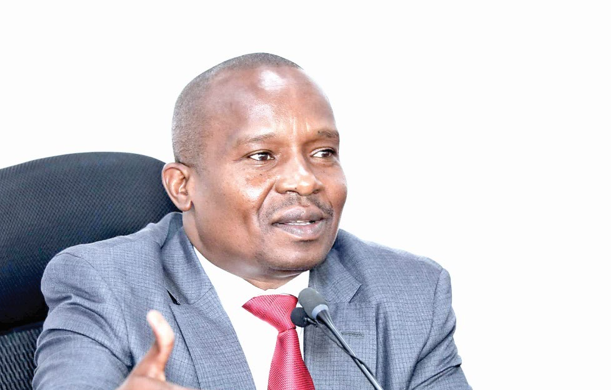Security heads keeping country safe

As the year begins, the Cabinet Secretary for Interior and National Administration Prof Kithure Kindiki’s pressing assignments include dealing with terrorism, especially in the Coast and North Eastern regions and banditry in the six North Rift counties under the Operation Maliza Uhalifu.
Schools are opening next week and one of his main tasks will be to ensure adequate security personnel and resources are deployed to the areas to ensure no more disruption of learning activities.
The government has deployed multi-agency operations consisting of local administration, police’ formed unit and the military and there has also been the recruitment of reservists however normalcy has not been fully restored in the region.
Though a number of measures have been put in place to address terrorism, including the establishment of the Regional Counterterrorism Training Centre at Kanyonyoo Border Police Unit in Kitui, the country is still experiencing attacks.
The government is in the process of acquiring more sophisticated equipment and better personal protection for those working in high-risk areas and bringing the number of injuries and fatalities down.
Kenya now chairs the Regional Centre on Small Arms and Light Weapons (RECSA) member states thus playing a lead role in the fight against small arms.
One of the regional key roles of the CS will be to ensure illicit arms are out of the hands of criminals and terrorists and reduce accessibility and availability of illicit arms.
President William Ruto announced visa-free entry to Kenya and there are fears of possible infiltration by terrorists, fugitives, money launderers and other transnational criminals.
The ministry will have to fully digitise immigration processes and integrate border services to enhance efficiency and improve security measures, including advance passenger screening.
The ministry is also in the process of procuring facial recognition scanners for our points of entry and exit.
In a bid to secure the nation’s borders, the government had adopted an all-government-approach to bolster security and ensure efficiency in our ports of entry and exit on land, air, and sea.
To professionalise the service and make it more accountable, the CS will also push for measures to deal with extrajudicial killings and use of excessive and unnecessary force.
CS Kindiki is also expected to enhance the efficiency of the correction services and the Immigration department among others
The Non-Governmental organisations (NGOs) contributed almost Sh180 billion the last financial year but only 30 per cent of them filed their returns for the 2021/2022 financial year.
CS Kindiki is also expected to put measures in place to ensure transparency in their funding and expenditure, and also heighten vigilance against illicit financial flows and terrorist financing.
The other key individual to watch in the security sector is Noordin Haji.
Almost seven months into office, the Director General of the National Intelligence Service (NIS) has been working behind the scenes to help other agencies tackle terrorism, banditry, political instability, religious cultism, and emerging cyber and transnational crimes among others.
Generally, there has been a decrease in terror and banditry attacks due to the acquisition of security equipment and the multi-agency approach to dealing with such crimes.
Initially, the failure to realise meaningful success in the North Rift banditry operations has partly been attributed to lack of proper intelligence.
The attacks forced the country to postpone the planned reopening of the Kenya-Somali border points, which were closed 12 years ago.
Both Kenya and Somalia said the reopening would ensure resumption of trade between the two countries, facilitate movement of people and promote sustainable development between the two countries.
Haji had last year admitted that there were challenges in gathering intelligence in some parts of the country. One of his main challenges, going forward, would be to ensure that intelligence from the Service is timely, appropriate, accurate and actionable.
The Shakahola cult massacre, for example, was due to lack of timely intelligence
The Service is also refocusing on how intelligence is collected not just on technology, but also through face to face, sources and informers.
The spymaster also promised that going forward, recruitment to the NIS will be relooked into, to cater for low cadre officers who can gather intelligence even from the remote and far flung areas.
To deal with the complaints and ensure they are properly investigated to make the service more accountable and professional, Haji is also expected to operationalise the Intelligence Service Complaints Board that is tasked with receiving and inquiring into complaints against the Service, the DG or any member of the Service.
Haji, as the principal advisor to the President and Government on national security, has a wider mandate including detecting and identifying threats or potential threats, collecting intelligence to be shared with relevant state agencies, and security vetting.
The divisions of NIS include the internal intelligence (for gathering domestic intelligence), External intelligence (for gathering foreign intelligence), and Counter-intelligence (for gathering and performing counter-intelligence). Other divisions are the Administration, IT, Operations, Analysis and production, and the National Intelligence Academy.
The other is Interior Principal secretary Raymond Omollo.
As the chair of various critical dockets, Omollo has his work cut out for him.
Some of the crucial tasks include ensuring the country’s cyberspace is secure, making the police service more effective and accountable, dealing with the consumption of illicit brews and capacity building of National Government Administrative Officers (NGAOs).
Dr Omollo chairs the National Computer and Cybercrimes Coordination Committee (NC4), a multiagency Committee mandated to coordinate all cybersecurity matters in Kenya towards enabling timely detection, prohibition, prevention, response, investigation and prosecution of computer and cybercrimes.
Reports indicate there have been increased global internet traffic targeted at several critical infrastructures, including an attempt on our e-Citizen platform in July last year.
As a result, one of his key roles is to ensure that the country’s cyberspace is trusted and secure, and that both the privacy and security of data are not compromised, while maximis ing the benefits of a digital economy.
Omollo said a legislative framework for Critical Information Infrastructure and Cybercrime Management Regulations, 2023 has already been presented to the Parliamentary Departmental Committee of Communication, Information and Innovation.
The regulations seek to better protect the Critical Information Infrastructure and provide proactive monitoring, detection, and response approaches to which public and private entities can manage cybercrime.
In Executive Order No. 2 of 2023, Dr Omollo’s docket has been entrusted with diverse roles.
The State Department houses several Semi-Autonomous Government Agencies (SAGAs) including the Private Security Regulatory Authority (PSRA), National Authority for the Campaign against Alcohol and Drug Abuse (NACADA), Border Management Secretariat (BMS), the Kenya Coast Guard Services (KCGS) and the Peacebuilding and Conflict Management Directorate, among others.
Through NACADA, the NGAOs, and other agencies, Dr Omollo is tasked with dealing with the consumption and trade of illicit brews and third generation liquor, which continue to be a huge area of concern that continues to impact the country’s workforce.
A significant number of youth were involved in criminal activities with 9,369 arrests for drug-related offenses and 1,113 suspects nabbed in organized criminal gangs.
The ministry was allocated Sh182.5 billion for the 2023-2024 fiscal year Out of this, Internal Security was allocated Sh28.2 billion which will go to modernizing police equipment.












